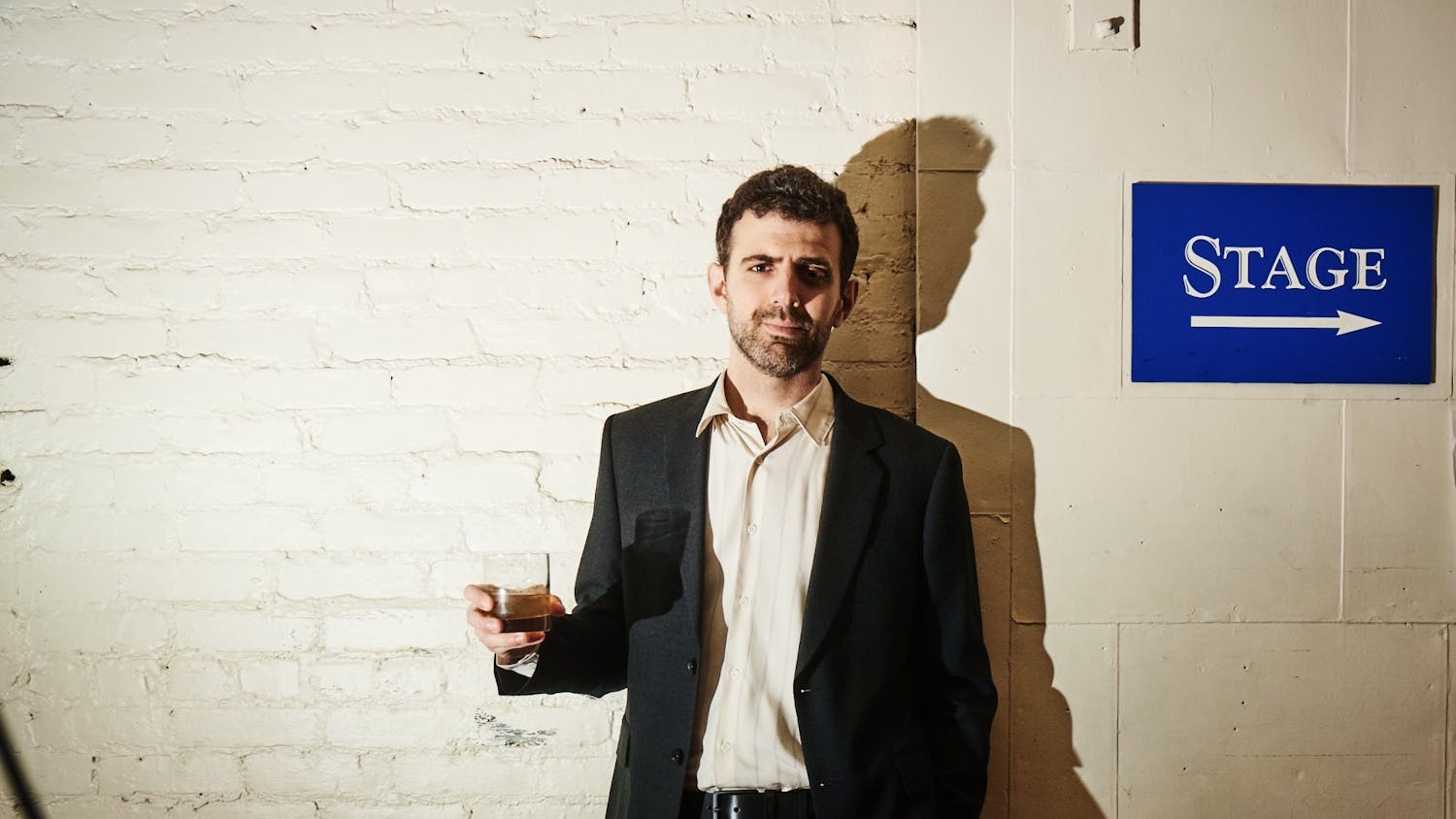Continuing the conversation on sexual assault and dating abuse at AU, the Office of Campus Life and the Wellness Center held a forum on the topic Sept. 14 in Butler Boardroom.
The forum discussed AU’s sexual assault education measures, the Wellness Center’s new Peer Educators program and a national survey on gender-based violence faced by U.S. college women.
Campus Life scheduled the forum in light of last semester’s protests over Vice President of Campus Life Gail Hanson’s refusal to sign a federal grant proposal that would have given AU $300,000 to improve its sexual assault education programs.
In response to the protests, the office agreed to organize a sexual assault forum this fall.
In addition to Hanson, the panel included:
• Rosie McSweeney, director of Student Conduct and Conflict Resolution Services
• Michelle Espinosa, associate dean of students
• Robert Hradsky, assistant vice president and dean of students
• Daniel Rappaport, sexual prevention coordinator
• Courtney Brooks, a part-time staffer in the Women’s Resource Center.
About 50 AU community members and camera crews from Channel 9 and FOX 5 attended the event.
Representatives from the Department of Public Safety, Housing and Dining, University Communications, the GLBTA Resource Center and the Student Health Center also attended the forum.
Nearly half of college women experience gender-based violence
The event was also the stage for the national unveiling of the College Dating Violence and Abuse Poll, sponsored by Liz Claiborne Inc.
Nearly half of the women surveyed in the study said they experienced sexual abuse and/or violence in a relationship, and 60 percent of those women said they experienced it in college. The poll surveyed over 500 students on U.S. college campuses last spring.
Hanson said the polling numbers reveal the necessity for dating abuse education.
“The data is always alarming,” Hanson said. “[Students] have the power to try to change what’s happening to people your age.”
AU sexual assault education
The panelists talked about their efforts for continuous improvement in educating the AU community about sexual assault and in offering counseling for survivors.
Hanson outlined the University’s goals to expand the sexual assault program.
“It’s not a good solution, this ‘one size fits all,’” Hanson said. “We chose a broad-based way to give people choices, so they can deal with their trauma in a way that works for them. We’re in conversation to identify what we need to have in place.”
Campus Life also introduced the non-mandatory SexualAssaultEdu this summer as part of the AlcoholEdu program.
Over 95 percent of freshmen participated in the program.
The dual program offers precautions about drinking and driving, alcohol poisoning, sexual assault avoidance and counseling.
Mandatory sexual assault education was a major sticking point in Hanson’s refusal to sign the federal grant this spring. The grant would have required stops to be placed on students’ accounts if they did not complete the program.
A two-page handout at the forum listed AU’s efforts to battle sexual assault, from changes to the Student Conduct Code to educational initiatives.
“We can’t underscore enough the importance of education and awareness of sexual assault,” Hradsky said.
One of the educational measures listed on the handout included summer orientation’s “True Stories” session, where an orientation leader shared her own story of being sexually assaulted.
Lauren Croll, a sophomore in the College of Arts and Sciences, then stood up at the September forum, saying she was the orientation leader who shared the story.
“I am offended that this [sharing my story] is listed under education,” Croll said. “It was a story. It was not education.”
Croll said orientation leaders were not prepared to deal with the students who disclosed to them that they had been sexually assaulted.
“I chose to present my story because I knew it was the only way those students would be exposed to sexual assault,” Croll said.
Sexual assault Peer Educators
Sexual Assault Prevention Coordinator Daniel Rappaport also introduced the Wellness Center’s Peer Educators program, which will operate under his supervision this fall. The program includes 12 trained students who will run workshops instructing students on the prevention of stalking, sexual harassment, relationship violence and sexual assault.
Quinn Pregliasco, former director of Women’s Initiative, expressed concern that students are being asked to bear the burden of hearing the stories of and supporting sexual assault survivors.
“I am nervous that, again, students are in a situation where they will be confided in and will hear disclosures [about sexual assault],” Pregliasco said.
Rappaport said the peer educator group will meet with him every week for an hour and a half to debrief and learn how to handle disclosures.
“Women’s Initiative has done this work [hearing disclosures] for awhile, but it is a student organization,” Hanson said. “Peer educators are tied to the Wellness Center and are better prepared paraprofessionals.”
Attendees also re-emphasized their desire for someone with confidentiality that could be an intermediary between the University and survivors of sexual assault while maintaining their anonymity.
“We’re working to create one or two other confidentiality venues,” Hanson said. “We know people want confidentiality and advocacy, and we’re working to get that.”
Campus Life also hopes to make more progress in AU’s sexual assault education with other initiatives such as updated informational stall stickers, Women’s Initiative’s awareness programs and the Discrimination and Sexual Harassment Project Team.
“We really need to think through the places where we are employing peer leaders, and we need to prepare them to handle disclosures,” Hanson said. “We don’t know what to expect, so we need to prepare them for the full range of things that will come up.”
news@theeagleonline.com




